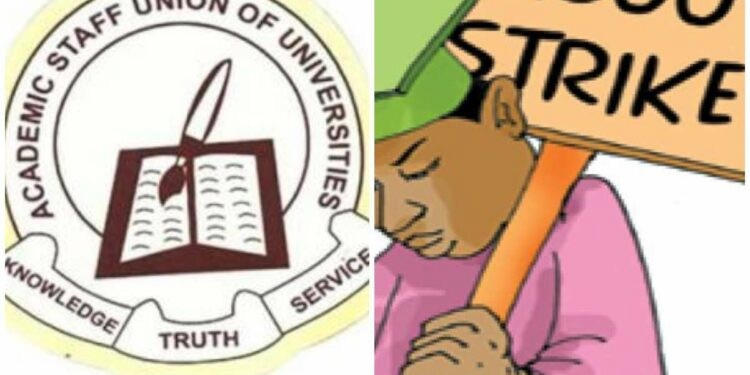The Academic Staff Union of Universities (ASUU) has called on Nigerians to hold the Federal Government accountable if its members decide to strike and close public universities across the country.
The union asserted that it has made every effort to prevent an impending strike, but the government has shown a lack of sincerity in addressing the union’s concerns.
In a statement released on October 2 by Zonal Coordinator Raphael Amokaha, the ASUU-Nsukka Zone highlighted the parallels with the prolonged strike in 2022, warning that a similar situation is developing.
Amokaha pointed out that unresolved issues from past negotiations include the renegotiation of the 2009 ASUU/FGN Agreement, inadequate funding for universities, the unlawful interference of the Integrated Personnel Payment Information System (IPPIS) in university bursary functions, non-payment of Earned Academic Allowances (EAA) despite their inclusion in the 2023 budget, and other outstanding entitlements.
He emphasized that since the last nationwide strike was suspended in October 2022, the union has made significant efforts to prevent further disruptions, including legal action through the National Industrial Court. However, both the previous and current governments have largely ignored ASUU’s concerns.
“This dismissive attitude may stem from a misguided belief that they have triumphed over ASUU. Why else would a government treat the pleas of an academic union with such disregard, especially after recent campaign promises?” he questioned.
ASUU, known for its dedication to the cause, has persisted with the same issues for the past seven years. Amokaha expressed the union’s reluctance to repeat these concerns, fearing it may sound repetitive. The union has consistently sought peaceful resolutions to avoid industrial unrest in public universities.
He pointed out that the government has failed to show responsiveness or commitment to previous agreements, asserting that the ASUU-Nsukka Zone believes it has done everything reasonable to prevent further disruptions.
Amokaha encouraged public-spirited individuals and citizens to support the union’s efforts for a peaceful resolution. He noted that university workers have not seen a salary review in 15 years, despite repeated press interactions, protests, and town hall meetings aimed at urging the government to act, all of which have been in vain.
He criticized the government’s lack of commitment, stating that agents have been unresponsive and evasive during meetings.
In light of the President’s recent address on the nation’s independence anniversary, which mentioned a planned month-long youth conference, Amokaha questioned its effectiveness compared to four years of quality education for youth. He urged the government to prioritize education as a means to secure the future of Nigeria’s youth.
Despite diminished hopes for the current administration, ASUU remains resilient. The ASUU-Nsukka Zone made it clear that if the government forces the union into a strike, it will be solely responsible for the ensuing crisis, and any calls for resolution should be directed at the government, not the union.
